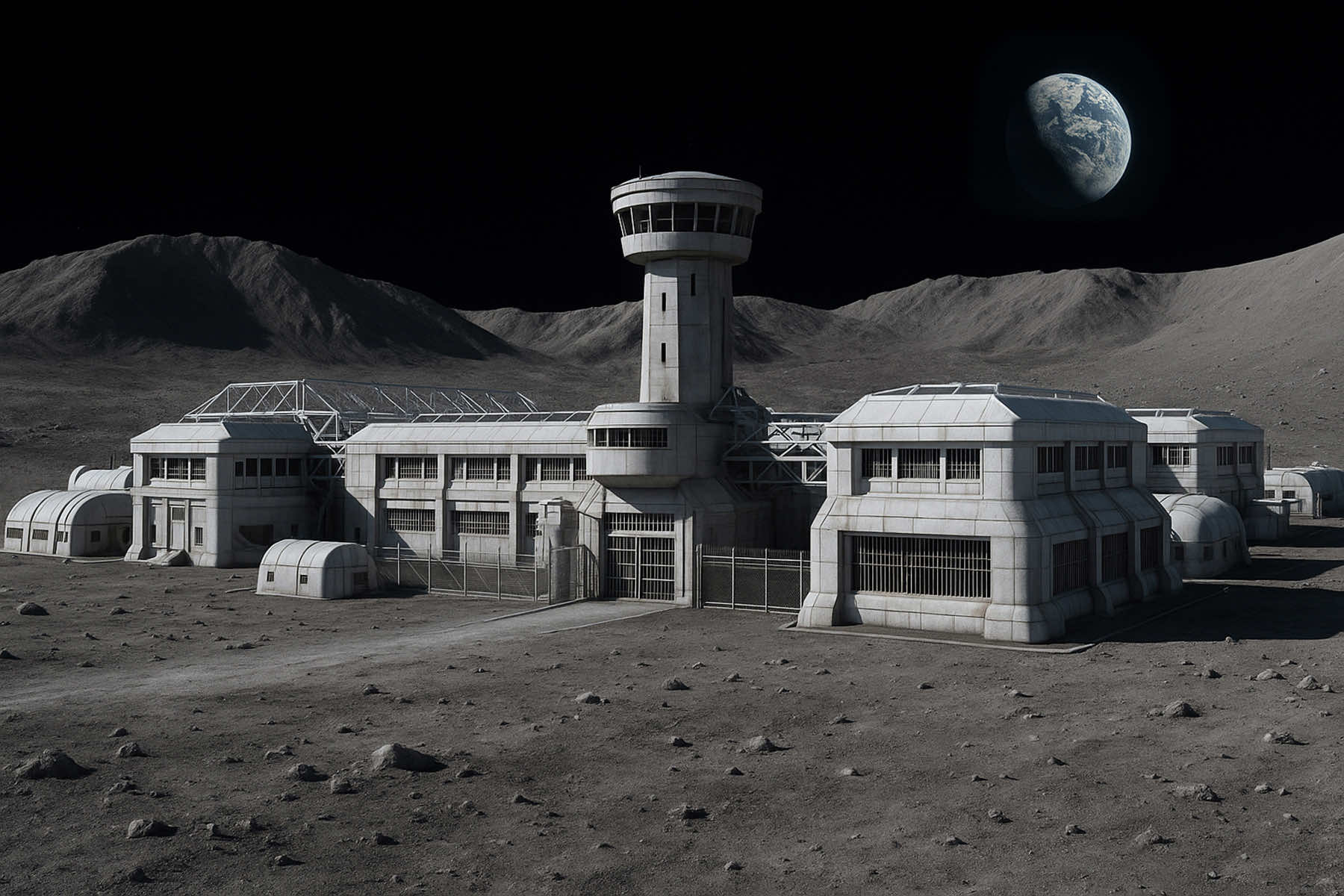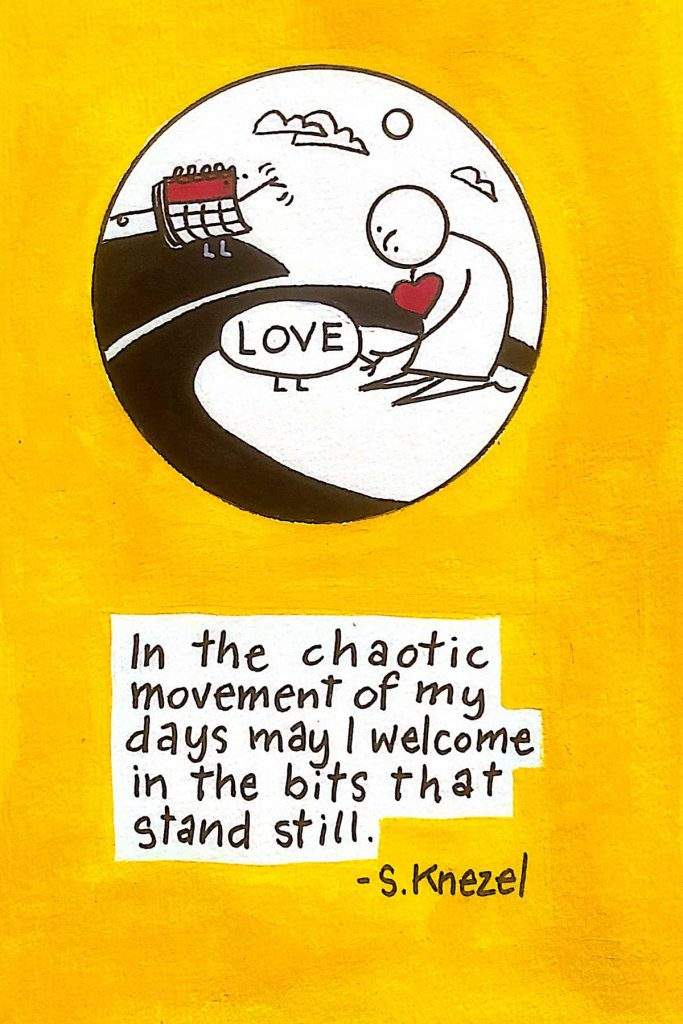
Donald Trump has not proposed building a prison on the moon, yet. But the idea of launching his enemies into orbit, exiling criminals to a cold crater, and vanishing dissenters into the silent void fits seamlessly into Trump’s political behavior. Someone needs only to whisper the idea or post the suggestion on his Truth Social page, and it would likely become policy.
The concept is both absurd and also plausible, which is the point. It is how authoritarian logic works when spectacle becomes policy. Absurdity makes its own truth.
Trump has conditioned the nation to process each new obscenity as just another improvisation. And if he is already deploying federal agents to snatch civilians off American streets and jailing migrants in remote desert camps, all that remains is to escalate.
What could be more separated from U.S. society than Alcatraz? What is beyond El Salvador? Where could Trump disappear people further?
The moon would be the next logical step of illogical reasoning.
The immigration policies during Trump’s first term were designed to separate thousands of children from their families, some permanently. His approach to incarcerating people went beyond merely jailing them. He reduced them to symbols of his dominance. Rehabilitation was not the goal, fear was. And that message was delivered in the form of pain.
Robert A. Heinlein imagined this outcome nearly sixty years ago. In his 1966 book “The Moon is a Harsh Mistress,” the Earth has converted its orbiting celestial satellite into a penal colony. Being sent there was not as a temporary sentence, but as a generational exile.
Prisoners were deported to the lunar surface and forgotten. Their descendants were born in captivity and lived their entire existence in forced labor. The moon was more than a prison. It was a solution to many of Earth’s problems. It offered the purest form of disappearance.
Heinlein’s protagonist, Manuel Garcia O’Kelly-Davis was a technician drawn into a lunar rebellion against Earth’s authoritarian control. The lunar colony, long used as a dumping ground for convicts and the unwanted, united in protest and in defiance of a system built to keep them invisible. Their only ally was a sentient computer named Mike, a machine that saw them when no one else would.
The novel’s theme of forced exile and centralized power echoes in the real-world trajectory of American politics under Trump. Space is no longer the final frontier. It is the next jurisdiction.
It is a distant place where Trump’s autocratic mandates can function beyond the gravity of Earth, beyond the reach of courts, beyond the rule of law. No due process. No appeals. Just silence, vast and unbroken. That is the situation Trump yearns for.
Stephen Miller, a political advisor to the White House, appeared on Fox News on May 5 to explain his desire to reopen Alcatraz and justify the policies of Trump-era imprisonment.
“We need a place in this country where we can send people to visually demonstrate their total separation from society. The fact that they’re not going to live among us and will never live among us,” said Miller.
The statement was not about correctional philosophy, or even law-and-order rhetoric. It was about institutionalizing banishment. It was a worldview that believed certain people, like migrants, protesters, journalists, political opponents, and anyone who dared to challenge Trump’s rule, must be cut off entirely from the public.
They don’t serve time. They don’t pay a debt. They just vanish.
That is why the moon, though outlandish, fits perfectly. The further the condemned are sent, the more powerful the message. John Carpenter’s Snake Plissken had Manhattan. Henri Charrière’s Papillon had Devil’s Island in French Guiana. But Trump, unbound by realism and enabled by technology, could dream farther.
Such a precedent is already forming. Elon Musk’s SpaceX has proposed a missile defense system called Golden Dome. Instead of being owned by the U.S. government, Washington would pay a subscription fee for access to the system, much like how consumers pay for cloud storage.
The missiles would launch from SpaceX platforms. The infrastructure would be private. The control would be corporate. Musk could modify his hypersonic rockets to deport U.S. prisoners into space “like (Amazon) Prime, but with human beings.”
Trump and Musk share a worldview where technocratic autocracy is disguised as innovation. Privatize the mechanisms of state violence. Wrap them in Silicon Valley branding. Deny the consequences.
A penal colony on the moon would fulfill Trump’s ultimate policy of erasure.
The precedent for that dystopia is not just literary, but structural. Authoritarian regimes have always relied on exile to silence dissent. The Soviet gulags, South Africa’s Robben Island, and even U.S. internment camps during World War II followed the same principle. Remove the problem from view, then deny it exists.
Trump, with his flair for political theater and appetite for vengeance, would take such logic to its cruelest frontier. In that context, a moon prison is not outlandish. It is a predictable progression.
The moon, unreachable and silent, offers the perfect blank page for America’s most dangerous experiment yet, a penal colony that no one can see, touch, or stop.
© Image
Cora Yalbrin (via ai@milwaukee)














